It’s Friday evening and I haven’t written a blog post all week. I can give a typical round of “a very busy ‘to-do’ list,” or “dog-ate-my-homework” excuses, but the real reason is that I haven’t been motivated. Usually, once an idea starts tickling me, it’s no problem to sit down and write, but that didn’t happen this week.
And despite my lack of creative zing, I had to write a poem every day, or, at least, a few lines dressed up as a poem for 30 Poems in November. That was about all I could corral my writer mind into doing.
In fact, earlier today when I suddenly made a rare decision that it was time to tackle the mound of homeless papers that hadn’t found their way to my file cabinet–a task that would involve emptying the file cabinet of papers that no longer needed to be there–I completely forgot that I was about to blow my streak of blogging 34 weeks in a row.
So now I’m writing against a deadline, plodding along even though my heart isn’t in it. Sometimes, when The Muse is AWOL, plodding is where it’s at. Every novel or long CNF work I’ve written would have never been completed if I hadn’t sucked in my breath and resolved to plod my way through, even on days I had no motivation.
I know my lack of motivation right now comes from being shell-shocked by the election results and the shock-and-awe tactics of bad and worse news coming down the pipeline quicker than I can respond to it. Likely I’m not the only one who’s overwhelmed by the onslaught of news stories, emails, and newsletter posts urging me to take some sort of action: calls to listen to, more articles to read, phone calls to make–all of which feel crucial and important.
But there are far more actions than I could possibly do.
So I plod along, careful to prioritize the things I’ve already committed to, like working with my immigration justice group to help build a wider coalition in our community, and writing calls-to-action for Rogan’s List, a very useful way of keeping on top of the news and plugging in where you can.
But even these things feel like very small steps to address the morass–like trying to fend off a big wave with a small flick of my hand.
How not to drown?
The only way I know is to make sure I take time for the self-care I need and keep on plodding. One action, one poem, one blog post at a time.
And to remember the story of The Hare and The Tortoise. How the tortoise won.
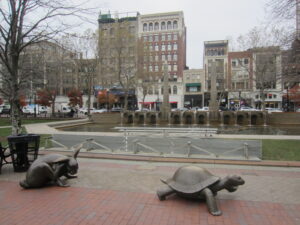
Another Believer, CC BY-SA 4.0 <https://creativecommons.org/licenses/by-sa/4.0>, via Wikimedia Commons
Subscribe at https://ddinafriedman.substack.com

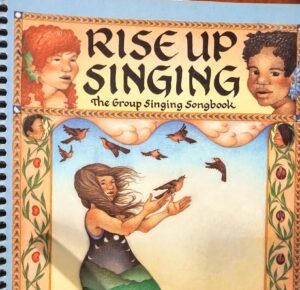

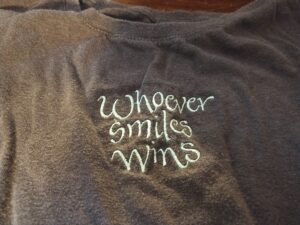



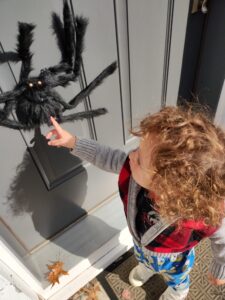

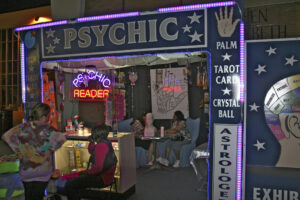



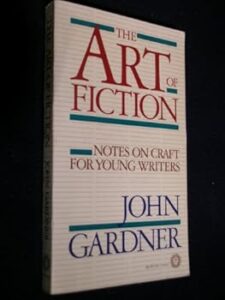 And this, I think, is a good lesson for fiction writers–even if the “lies” (which I’d prefer to call “stories” in this context are not intended to do harm or be taken as factual. Writer John Gardener in The Art of Fiction writes about the importance of creating “a continuous unbroken dream” where the reader is totally ensconced in whatever reality the writer has created–kind of like a virtual reality experience that’s dependent on words, rather than 3-D classes.
And this, I think, is a good lesson for fiction writers–even if the “lies” (which I’d prefer to call “stories” in this context are not intended to do harm or be taken as factual. Writer John Gardener in The Art of Fiction writes about the importance of creating “a continuous unbroken dream” where the reader is totally ensconced in whatever reality the writer has created–kind of like a virtual reality experience that’s dependent on words, rather than 3-D classes.